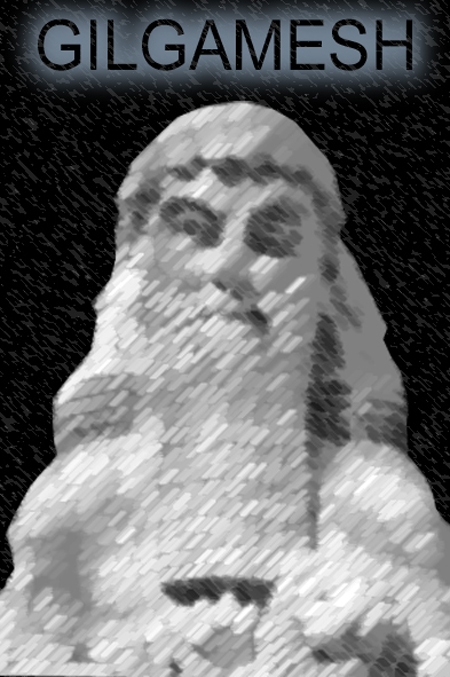

Aug 20, 2013 It would also contradict everything that Utnapishtim has already said about the impossibility of Gilgamesh being granted eternal life. Despite the failure of his quest to obtain immortality, the prologue to the.
Themes are the fundamental and often universal ideas explored in a literary work. Love As a Motivating Force Love, both erotic and platonic, motivates change in. Cossacks Art Of War Patch. Changes from a wild man into a noble one because of Gilgamesh, and their friendship changes Gilgamesh from a bully and a tyrant into an exemplary king and hero.
Because they are evenly matched, Enkidu puts a check on Gilgamesh’s restless, powerful energies, and Gilgamesh pulls Enkidu out of his self-centeredness. Gilgamesh’s connection to Enkidu makes it possible for Gilgamesh to identify with his people’s interests.
The love the friends have for each other makes Gilgamesh a better man in the first half of the epic, and when Enkidu dies, Gilgamesh’s grief and terror impel him onto a futile quest for immortality. The epic may lack a female love interest, but erotic love still plays an important role.
Utnapishtim tells Gilgamesh the story of the flood—how the gods met in council and decided to destroy humankind. Myanmar Cook Books.pdf. Ea, the god of wisdom, warned Utnapishtim about the gods’ plans and told him how to fashion a gigantic boat in which his family and the seed of every living creature might escape. The Epic of Gilgamesh study guide contains literature essays, quiz questions, major themes, quotes, characters, and a full summary and analysis. 3 Lessons ‘The Epic of Gilgamesh’ Can Teach Us About Life. The Epic of Gilgamesh, an. He begins a desperate search for immortality.
Enkidu’s education as a man begins with his sexual initiation by the temple harlot, and the two heroes’ troubles begin with their repudiation of Ishtar, the goddess of love. Humanity renews itself through the female life force, which includes sex, fertility, domesticity, and nurturance, not through an arbitrary gift of the gods. When Gilgamesh finally sees that his place is here on Earth and returns to Uruk to resume his kingship, Ishtar returns to her place of honor. The Inevitability of Death Death is an inevitable and inescapable fact of human life, which is the greatest lesson Gilgamesh learns. Gilgamesh is bitter that only the gods can live forever and says as much when Enkidu warns him away from their fight with Humbaba. Life is short, the two warriors tell each other on their way to the deadly confrontation in the Cedar Forest, and the only thing that lasts is fame.
But when Enkidu is cursed with an inglorious, painful death, their bravado rings hollow. Shamash, the sun god, consoles Enkidu by reminding him how rich his life has been, but though Enkidu finally resigns himself to his fate, Gilgamesh is terrified by the thought of his own. Mesopotamian theology offers a vision of an afterlife, but it gives scant comfort—the dead spend their time being dead. If Gilgamesh’s quest to the Cedar Forest was in spite of death, his second quest, to, is for a way to escape it. Utnapishtim’s account of the flood reveals how ludicrous such a goal is, since death is inextricably woven into the fabric of creation.
But life is woven in as well, and even though humans die, humanity continues to live. The lesson that Gilgamesh brings back from his quest isn’t ultimately about death—it’s about life. The Gods Are Dangerous Gilgamesh and Enkidu learn all too well that the gods are dangerous for mortals. Gods live by their own laws and frequently behave as emotionally and irrationally as children. Piety is important to the gods, and they expect obedience and flattery whenever possible. They can often be helpful, but angering them is sheer madness—and a character’s reverence for the gods is no guarantee of safety.
Our Own Civilization By C.e.m.joad Pdf. Thus, the world of The Epic of Gilgamesh differs markedly from that of the Judeo-Christian tradition, in which God is both a partner in a covenant and a stern but loving parent to his people. The covenant promises that people will receive an earthly or heavenly inheritance if they behave well. The Judeo-Christian God represents not just what is most powerful but what is morally best—humans should aspire to imitate him. These differences are noteworthy because Gilgamesh also shares certain common elements with the Judeo-Christian Bible.